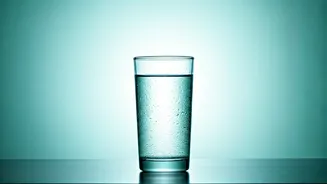Mindful Breaks
Taking regular, short breaks from mental tasks is crucial for mind detoxification. Stepping away from work or studies for a few minutes can work wonders,
helping the mind reset and refocus. Incorporating these breaks can be as simple as practicing deep breathing exercises or briefly closing your eyes to reduce mental fatigue. During these intervals, try to fully disconnect from work-related thoughts, allowing the mind to rest. This practice helps to improve concentration and reduce stress, fostering a clearer, more efficient mental state. The effectiveness of mindful breaks lies in their ability to offer a mental refresh, similar to a physical reset.
Digital Minimalism
Consciously reducing digital consumption is a powerful strategy. Start by identifying the apps and websites that consume the most time and energy. Then, consider limiting their usage or even deleting them, especially during evenings or weekends. This digital detox can create space for activities that nourish the mind. This approach isn't about complete abstinence, but rather about creating a more balanced relationship with technology. Schedule dedicated times for digital tasks, thereby preventing constant distractions and allowing more time for reflection and real-world interactions. Such efforts can lead to a significant decrease in mental clutter and a renewed sense of presence.
Embrace Nature
Spending time outdoors is a natural mind cleanser. Studies consistently show that exposure to nature reduces stress hormones and enhances cognitive function. Even a short walk in a park or a few minutes of gazing at greenery can boost mental clarity. During a nature walk, pay attention to the sights, sounds, and smells of your surroundings, letting the natural environment calm your mind. Incorporating nature into your routine is not always difficult; it can be as simple as having a plant at your desk or finding a spot to relax in a nearby garden. The benefits include a significant reduction in stress, improved focus, and a general sense of well-being.
Prioritize Sleep
Adequate sleep is fundamental to mental health. The brain uses sleep to process information and clear out waste products, a process crucial for mental detoxification. Aim for 7-9 hours of quality sleep each night to ensure optimal cognitive function and emotional balance. Establish a regular sleep schedule by going to bed and waking up at the same time every day, including weekends. Create a relaxing bedtime routine, such as reading, taking a warm bath, or listening to calming music. Good sleep hygiene improves cognitive function and fosters emotional stability, leading to enhanced mental clarity.
Mindful Meditation
Mindfulness meditation is an effective tool. Regular practice helps to train the mind to focus on the present moment, which can help to reduce anxiety and stress. Start with short sessions, even five minutes a day, and gradually increase the duration as you become more comfortable. During meditation, focus on your breath, letting thoughts pass without judgment. There are many guided meditation resources available online and through apps. By integrating mindfulness, individuals can better manage racing thoughts and improve focus. The benefits of mindfulness extend beyond stress reduction, promoting a greater sense of self-awareness and inner peace.
Nourishing Diet
The food we eat profoundly affects mental health. A balanced diet, rich in fruits, vegetables, and whole grains, provides the essential nutrients needed for optimal brain function. Limit processed foods, sugary drinks, and excessive caffeine, as these can contribute to mood swings and mental fatigue. Prioritize foods that support brain health, such as fatty fish, nuts, and seeds. Staying hydrated also plays a critical role in brain function; aim to drink adequate water throughout the day. Dietary choices have a direct impact on mental clarity, making this a vital part of the mental detox process. Healthy eating will provide both physical and mental benefits.
Creative Expression
Engaging in creative activities is a way to express emotions and clear mental blockages. This can involve writing, painting, music, or any form of artistic expression. Creative outlets can help process thoughts and feelings in a healthy way, reducing stress and boosting overall mental well-being. Schedule time for creative activities, even if it's just for a few minutes each day. The act of creating provides a welcome distraction from daily stressors and encourages mindfulness. Expressing feelings through art provides a means to process complex emotions. Finding such outlets promotes mental clarity, enhancing both cognitive function and emotional balance. Regular artistic expression contributes to a more balanced and centered mindset.














